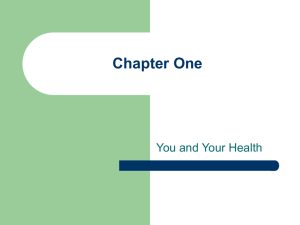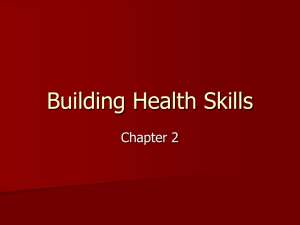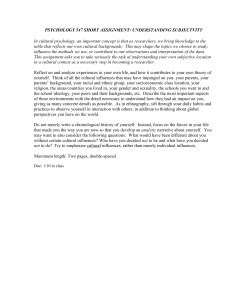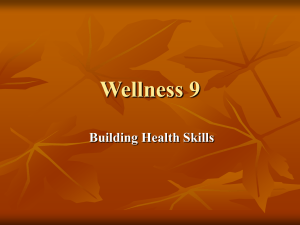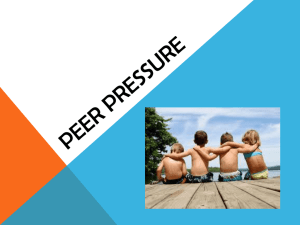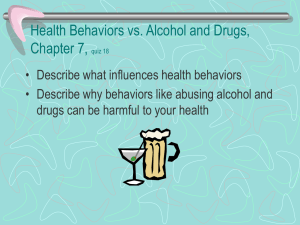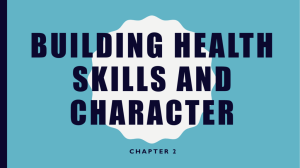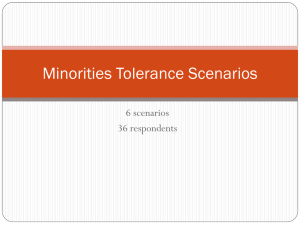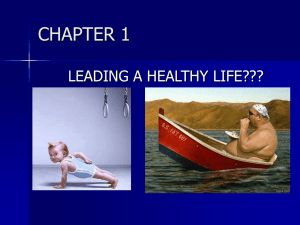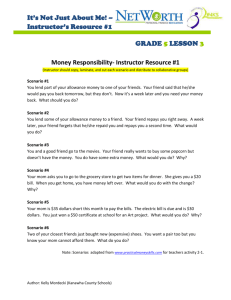Health Skills: Communication, Refusal, Conflict Resolution
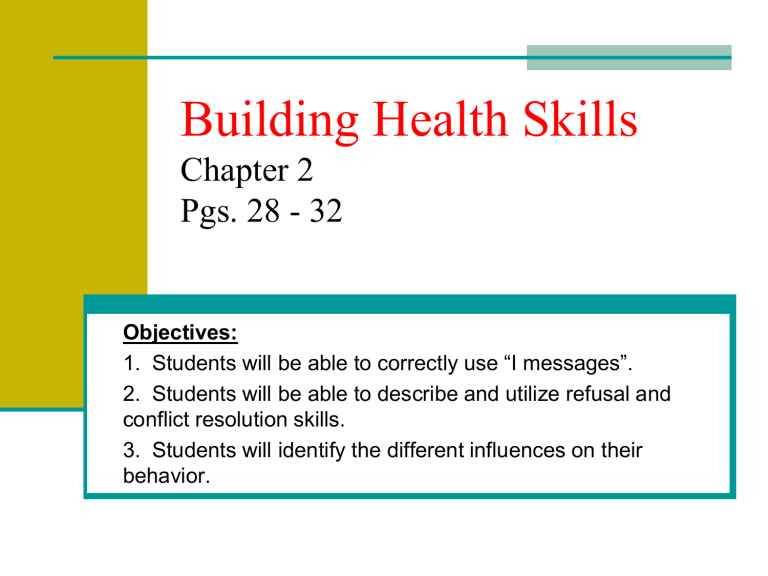
Building Health Skills
Chapter 2
Pgs. 28 - 32
Objectives:
1. Students will be able to correctly use “I messages”.
2. Students will be able to describe and utilize refusal and conflict resolution skills.
3. Students will identify the different influences on their behavior.
Journal Activity
The next time you get upset with someone use the “I” message instead of saying “you.”
Write down what was said and how you feel it went after the conversation was over.
(Remember to use a calm voice and listen attentively to what the other person is saying)
Example: I feel ________ when _______.
I’d like/want______________.
Activity – using the I message
Scenario #1: Your friend embarrasses you frequently in front of your friends by talking about your efforts to diet.
Scenario #2: Your brother or sister want you to lie to your parents for them about…...
Scenario #3: You want to stay out later with your friends but when you call your parents, they tell you no.
Scenario #4: You are at a party and the cute guy/girl offers you a ride home but you know they have been drinking.
Health Skills
Life skills
Specific tools and strategies that help you maintain, protect, and improve all aspects of your health
Interpersonal skills
The exchange of thoughts, feelings, and beliefs between two or more people
Say what you mean
Pay attention to how you say something
Be a good listener
Refusal Skills
Communication strategies that can help you say no when you are urged to take part in behaviors that are unsafe or unhealthy, or that go against your values
Say “No” in a firm voice
Explain why by stating your feelings
Suggest alternatives
Use appropriate body language
Walk away from the situation
Conflict Resolution Skills
The process of ending a conflict through cooperation and problem solving
Take time to calm down and think about the situation
Be respectful by speaking calmly, listening attentively, and asking questions when appropriate
Brainstorm solutions to resolve the conflict peacefully
Self-Management Skills
Practicing healthful behaviors
Good nutrition and fitness habits
Regular medical and dental check-ups
Avoiding alcohol, tobacco, and other harmful drugs
Managing Stress
Finding ways to deal with or overcome the negative effects of stress
Influences
Internal Influences :
include your knowledge, values, likes, dislikes, and desires based on your experiences and your own personal perspective on life
External Influences :
come from outside sources, such as your family, friends, peers, environment, culture, laws, and media
